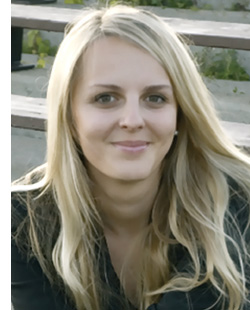
This spring I attended a talk given by Greg Morrisett, Harvard University, who spoke to graduate students about how they could best use their time while pursuing their Ph.D. I recently finished my own Ph.D. and have just started to transition into my postdoctoral work, and I found that his ideas lined up very well with my own observations. Although getting your degree might seem like a never-ending endeavor at times, it will be over before you know it and you need to be prepared. Below are a few tips to get you started.
Strategize. Try to plan six or seven years ahead in your career. If you don’t have an ideal track in mind, just come up with an option that seems most attractive to you right now. You can always adjust your career plans as you move forward. A bad strategy is better than no strategy at all.
Learn and practice. Use this time to figure out how you learn most effectively, and put that technique to good use. Enroll in courses outside your discipline—now is the time to sign up for that Chinese language class that you’ve always wanted to try. In addition to academic learning, take every opportunity to prepare yourself for teaching and management roles. Practice giving talks and hone your public speaking skills in any way that you can. These are all abilities that will serve you very well later in your career.
Explore both academia and industry. Apply for internships in different areas and attend conferences and workshops. Ask your advisor and colleagues for advice on the way that funding works and how to obtain it. Get comfortable applying for grants and other available funding resources. In general, develop a habit of asking for more--it never hurts to ask, as long as you do it the right way.
Analyze. It’s a good idea to keep a journal of your career plans and research ideas so that you can chart your progress. Be constructive with your appraisal of yourself, but don’t be too critical--there is some truth to the saying that cynics don’t make breakthroughs. Use this time to take some risks and experiment.
Collaborate. Work with other graduate students and different research groups as often as you can. Exploring various research styles will help you to identify your own preferred methods, and learning to work with a diverse range of people will teach you to be flexible and adaptable.
Socialize. Make friends and spend time with your colleagues and others outside the lab. Invest in these relationships, because these people will be your support network when you transition to your next position. The same applies to mentors and faculty. Get to know them and what they do before you leave the institution. Online interaction can be also quite helpful for making connections. Volunteer to blog and get your name out there.
The prospect of deciding your career post-Ph.D. can be daunting, but with careful planning you can make the transition much smoother.
Yanina Shevchenko (yshevchenko@gmwgroup.harvard.edu) is the NSERC Postdoctoral Fellow in the Whitesides Research Group, department of chemistry and chemical biology, Harvard University, U.S.A.
